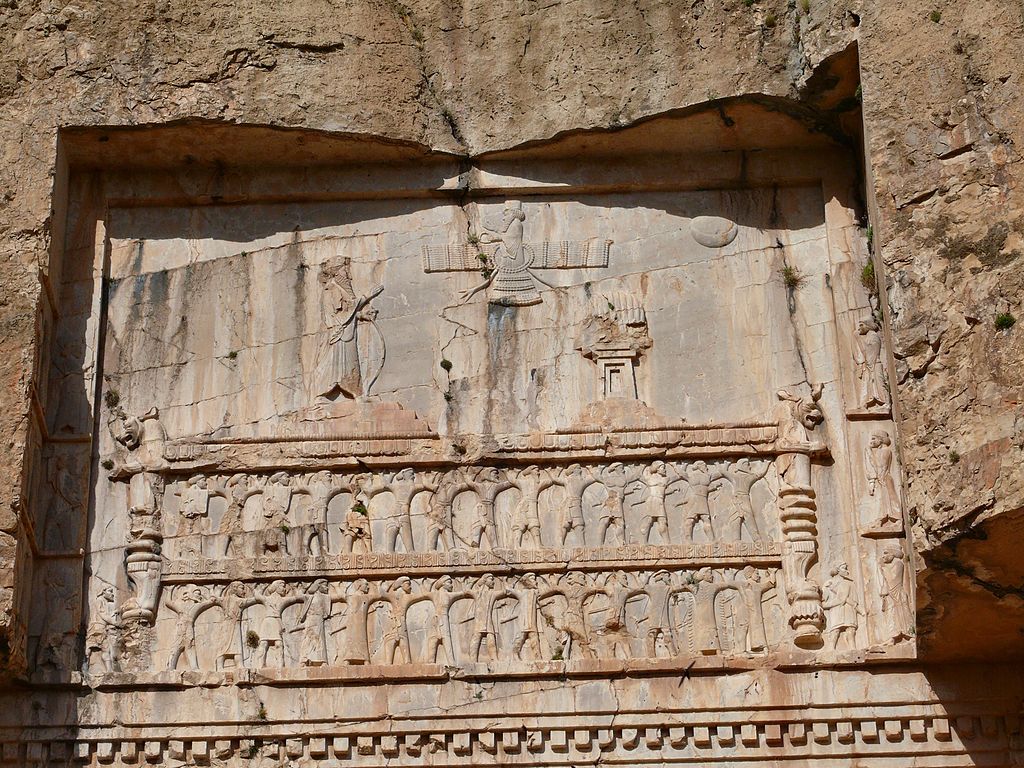
Part 1: Introduction | Part 2: We’ll See Who’s Boss | Part 3: Selfish Aims | Part 4: The King Gets What He Wants | Part 5: A Roll of the Dice | Part 6: The Tease
With Queen Esther’s plan in place, and in progress, the storyteller turns his focus to Haman. We already know that he’s proud and arrogant but not confident in his authority; he’s enraged by Mordecai’s simple refusal to bow to him—as if that matters—and his response far outmeasures the offense: he’s going to kill Mordecai, and he’s going to eradicate his entire people group.
The plan for the genocide is already in place, signed by the king and unalterable. Haman now turns to the specific task of getting rid of Mordecai without having to wait 11 months for the genocide date.
His approach has been affected, in ways he doesn’t realize, by Queen Esther, who has already outsmarted him. She knows of his arrogance and has played to it perfectly by inviting only him to join her and the king at a private but lavish feast—for two nights in a row.
His guard is completely down. After the first night, he goes home to his family and brags about the recognition (Es 5.11-12). But on the way home, the mere sight of Mordecai sitting in the gate increases his rage (Es 5.9). A slight has outweighed all the pleasures and privileges he holds in the kingdom.
He’s a petty, petty man.
And Esther knows it.
Haman’s wife and friends suggest that he rid himself of the problem of Mordecai with dispatch. He should build a gallows on which to hang the Jew.
When we hear “gallows,” we think of the hangman’s apparatus. But that’s not this at all.
This is a pointed stake, 75 feet tall (Es 5.14). You erect it, and then you lower the hapless victim onto the pointed top. It pierces his body, first from gravity and then from the writhing. When it gets to his heart—or maybe, mercifully, sooner—he dies.
I’m told that it’s an unpleasant way to go.
Haman likes the idea. He has his servants—he has plenty of servants—put the heinous contraption together.
He’s going to need the king’s permission to execute Mordecai before the appointed time. By now it’s nighttime, and the king isn’t available. But Mordecai clearly wants to get this thing done ASAP, so he takes the most efficient route open to him: he goes to the gate of the king’s court—probably the very place where he had seen Mordecai sitting earlier in the day—and he waits, like an iPhone fan waiting for the next model, or a Marvel fan waiting for the first showing. He’ll wait all night, he thinks, and be the first one in line in the morning. We’ll get this done.
He settles in.
And the whole story—all of it—hinges on what happens next (Es 6.1).
Xerxes can’t sleep.
That’s the hinge? A little thing like that?
Yep.
He can’t sleep.
So he calls a servant and tells him to go get a copy of the Congressional Record to read to him.
That’ll put him to sleep. Works every time.
And the servant, rubbing the sleep from his eyes and likely cursing the king under his breath, stumbles into the archive warehouse, weaves his way down a long aisle, and perhaps without even looking, pulls a nondescript clay tablet from a shelf. Doesn’t care what it is, because what it is doesn’t matter. Just need to get the stupid king back to sleep.
Back in the king’s bedchamber, the servant begins to read. This tablet, this randomly and blindly chosen tablet, is one we’ve seen before. It’s the scribal record of the two would-be assassins, who were executed after Mordecai reported them to the court.
What are the odds?
The hinge begins to move.
To be continued.
Part 8: Mental Explosion | Part 9: What Goes Around | Part 10: The Missing Piece
Photo credit: Xerxes tomb at Naqsh-e Rostam (4615488322) – Tomb of Xerxes I – Wikipedia



